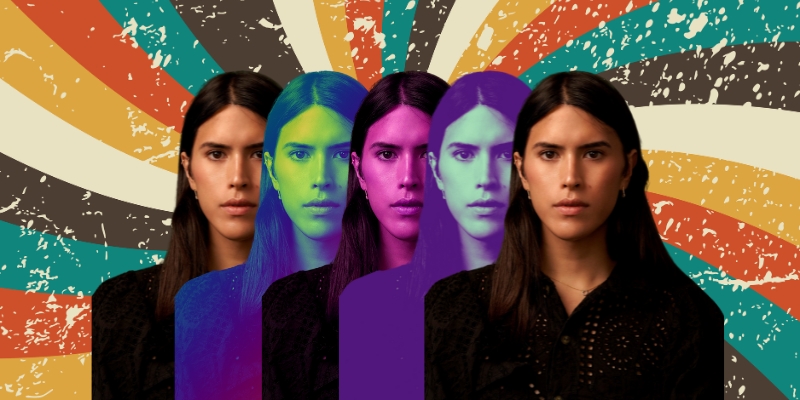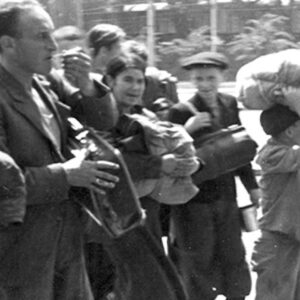
Crafting from of a Creator's Rib: Nicola Dinan on Writing Characters Based on Herself
The Author of "Disappoint Me" Reflects on Readers Seeing Her and Themselves in Fiction's Mirror
The worst part about publishing a book is that everyone around you will think they’re in it. Occasionally, it’s because you don’t bother to change the names, possibly because you think a person will never read it (they will, and they will reach out), or because you hope they will.
Most of the time, however, it’s because people have a nauseating tendency to place themselves at the center of other people’s stories, even works of fiction.
When my debut, Bellies, was published in 2023, my mother was relieved she came off well (she was not in the book). Another person, to this day, insists he’s a character in Bellies because the character also wears, groundbreakingly, glasses and a black turtleneck. Kill me, honestly.
A friend of mine provided a useful insight, shutting down speculation as to which character was whom.
“They’re all Nicola.”
Like Adam’s rib, I take a piece of myself and build characters around them.
It was a spectacular undressing, exposing because it was largely true. Like Adam’s rib, I take a piece of myself and build characters around them. They may seem quite different to me, but a part of Nicola continues, although it often takes a bit of time until I to recognize where that piece of me is.
Very late into the process, for example, or even after publication. As the distance grows between me and my second novel, Disappoint Me, I have begun to see the characters in a new, Nicola-tinged light.
Around the time I started writing Disappoint Me, during one of many COVID lockdowns, I confronted a large collection of photographs in my apartment, hidden in a bag inside a closet. During university, more than ten years ago, I would use a film camera and develop rolls in the local pharmacy. I wanted to have memories of my time which weren’t digital. Now, they sit in the closet like a lumpy ghost.
I’d hoped to fulfill the years-long wish to put them in large silk albums I received as a gift. But as I held the stacks, my oily fingers staining the gloss, I was unable to face the reality that the person holding the photographs was indeed the person in them.
I messaged friends, apologizing for my behavior, for being unwell, and this was met with confusion. Of course, I could be difficult, but according to them, it wasn’t an issue. What I was obviously feeling was shame. Not so much for how I behaved—though some of that behavior did warrant some apologies, such is being young—but for who I used to be.
When I’m asked if I enjoyed university, I often tell people that I lost my mind. In my final year, I would spend hours a day on healthcare forums and inspecting my body for diseases I did not have. I looked up “how likely is it for twenty-one-year-old to have ALS” too many times a day to count. Likewise, I checked my pulse every couple of minutes, playing overseer to my own heart, as if it would stop beating only if I let it.
To deal with my busy brain, I turned to the well-worn comforts of alcohol and drugs, which, of course, only made me feel worse. Flushed of serotonin, I’d wake up in the middle of the night with sleep paralysis, the feeling of hands twisting around my ankles, dragging me around my room; or to a figure above me, lunging at my throat, waking up for a moment towards reality, before my exhausted body fell asleep again, where the choking would resume.
I often committed the cardinal offense of bringing a camera to a club, and so in many of these photos, my friends and I are high. I don’t like this, either. Nobody looks particularly good in this state—eyes like out of sync dancers, teeth clenched like they’re fighting an eviction notice. But also, these faces compound the lies: a confused and terrified person masking as a confident and fun person, as well as a trans person masking as, well, someone who isn’t trans.
I’ve gone back to this moment, the revulsion I’ve felt, many times over the last few months, no doubt connected to the upcoming publication of Disappoint Me. I’d had enough space from Disappoint Me to do an appropriate autopsy – to locate what of Nicola exists in each of those characters on the page. A few years on from the moment I started writing it, something hit me: I’m more like them than I thought.
Disappoint Me follows a thirty-year-old trans woman named Max. In the novel’s opening chapter, she falls down the stairs at a New Year’s Eve party, wakes up in hospital alone, and decides to dive headlong into heteronormativity. She meets Vincent, a British Chinese lawyer who offers a beacon of traditional stability from which Max has long felt excluded.
The novel began as an exploration of the expectations placed on women, trans or not, as they enter their thirties. In particular, women who were promised the world in their twenties, encouraged towards boundless exploration, and yet find their ankles shackled just as they realize their freedoms.
It’s about women for whom a traditional partnership and family conjures conflicting emotions: terror and safety, comfort and alienation. These women swim in contradictions and struggle to resolve them.
And yet, as the novel evolved, it became much more about forgiveness, change and the relationship between our past and present selves. I wrote a series of chapters following Vincent on his gap year in Thailand with his best friend more than ten years before the start of the novel.
In this timeline, he meets a British trans woman named Alex. It’s a holiday which submerged in foreboding from the get-go, ultimately culminating in violence and tragedy.
For me, Vincent’s chapters became the eventual heart of the novel. Who was Vincent all this time ago? How do we trace our past selves towards the present? How does Max, or we, trust in that change?
People who’ve read the book often remark on the similarities between Max and I—our voice, our humor—but as time has gone on, I have started to see the many traces of me which exist in Vincent. His omissions with respect to his past with Alex are of a very human instinct to edit our personal histories, largely in a way which suits our visions of an idealized self.
Much like me, he cannot look at whatever it is my old photos represent: old misery, shame. He and his best friend, Fred, very much an instigator, are hamstrung, unable to discuss the harms of their past, only posturing at having moved forward.
Perhaps Vincent’s pursuit of Max is an exercise in fixing the past by repeating it, or to assure to himself that the past rests in a deep, deep grave. Yet through these exercises in denial, the past transforms from historical to haunting, looming over Vincent, much like it does with me and that enormous bag of photographs.
Perhaps ignoring my own misery and the harm I did to myself is less about moving on from it than it is a fear of regression. To what? The unhappy bygone self, shut away in a bag in the closet.
But you can’t run forever. Disappoint Me ultimately presents an inevitable collision, between Vincent’s relationship with Alex and his relationship with Max many years later. His elaborate curating is made impossible by the unearthing of what happened in Thailand, and while this represents a tragedy for Max, I can’t help but wonder if such a collision is necessary for Vincent’s growth.
People who’ve read the book often remark on the similarities between Max and I—our voice, our humor—but as time has gone on, I have started to see the many traces of me which exist in Vincent.
Can you really have learnt a lesson if you insist you’ve always known what you were taught? Isn’t change a good thing? And if so, doesn’t that require something to change from? Maybe our histories are a little bit like a Chinese finger trap—you can’t be free of your past until you embrace it.
They’re all Nicola. I’m reminded of my friends’ words when I think about Vincent, more than when I think about Max. It’s a call towards the silk photo albums gathering dust beneath the bed, and the large bag of photographs hidden in the closet. It’s time to open the pages, set favorites within. Maybe one day, I can close the page.
______________________________

Disappoint Me by Nicola Dinan is available Dial Press.
Nicola Dinan
Nicola Dinan grew up in Hong Kong and Kuala Lumpur and now lives in London. Bellies, her debut, won the Polari First Book Prize, was shortlisted for the Diverse Book Awards and Mo Siewcharran Prize, was a finalist for a Lambda Literary Award, and was longlisted for the Gordon Burn Prize and Brooklyn Public Library Book Prize. She is also the author of Disappoint Me.



















